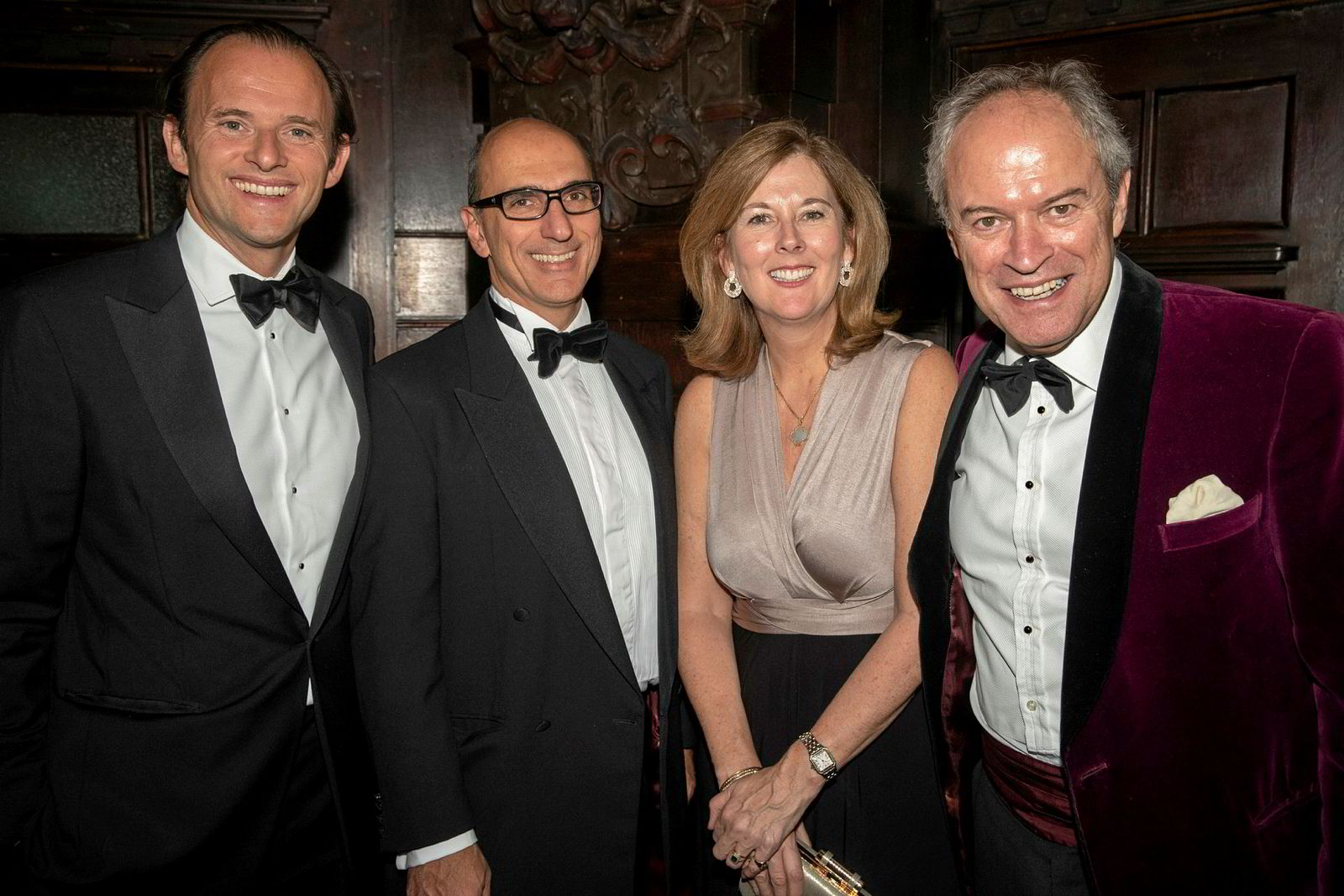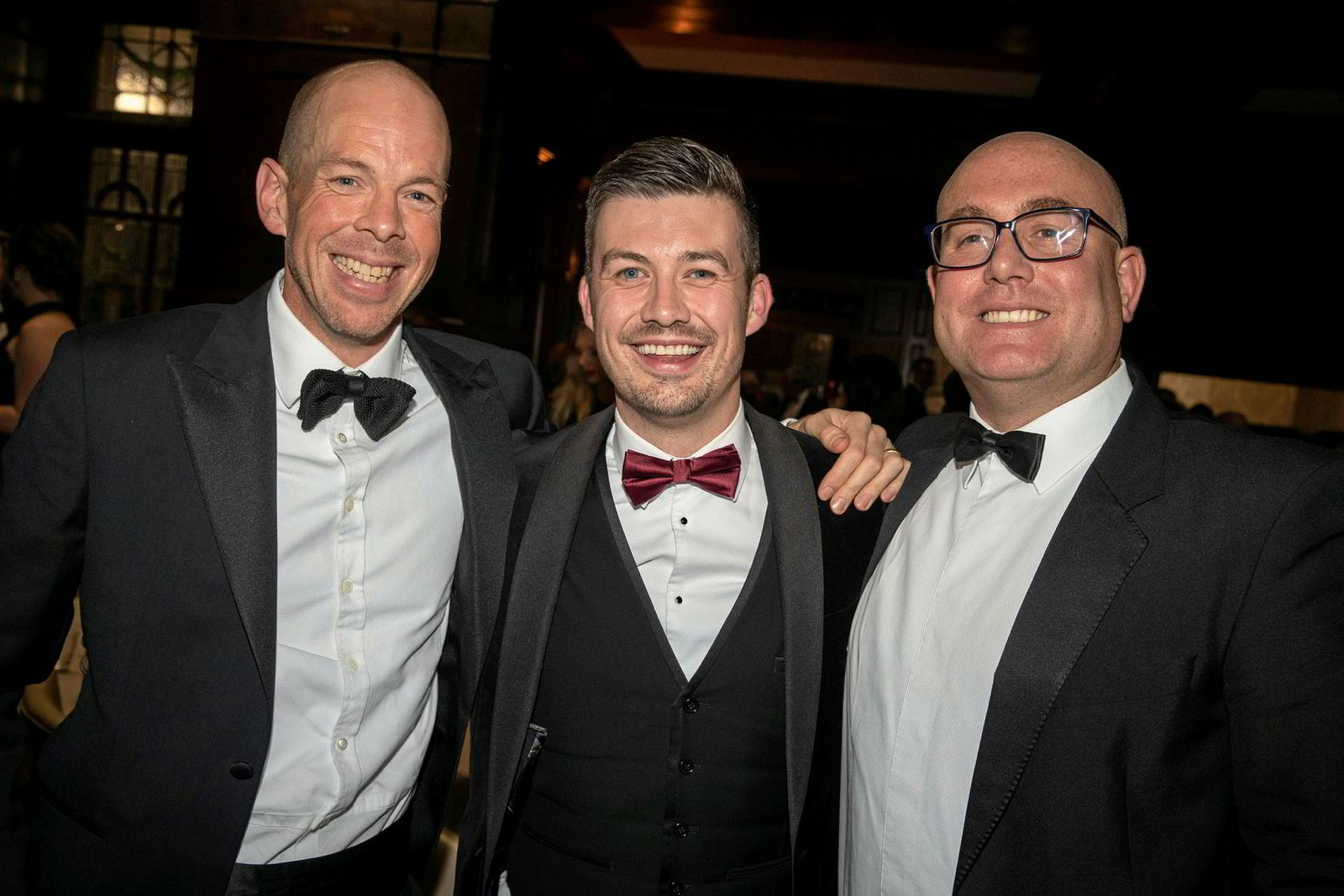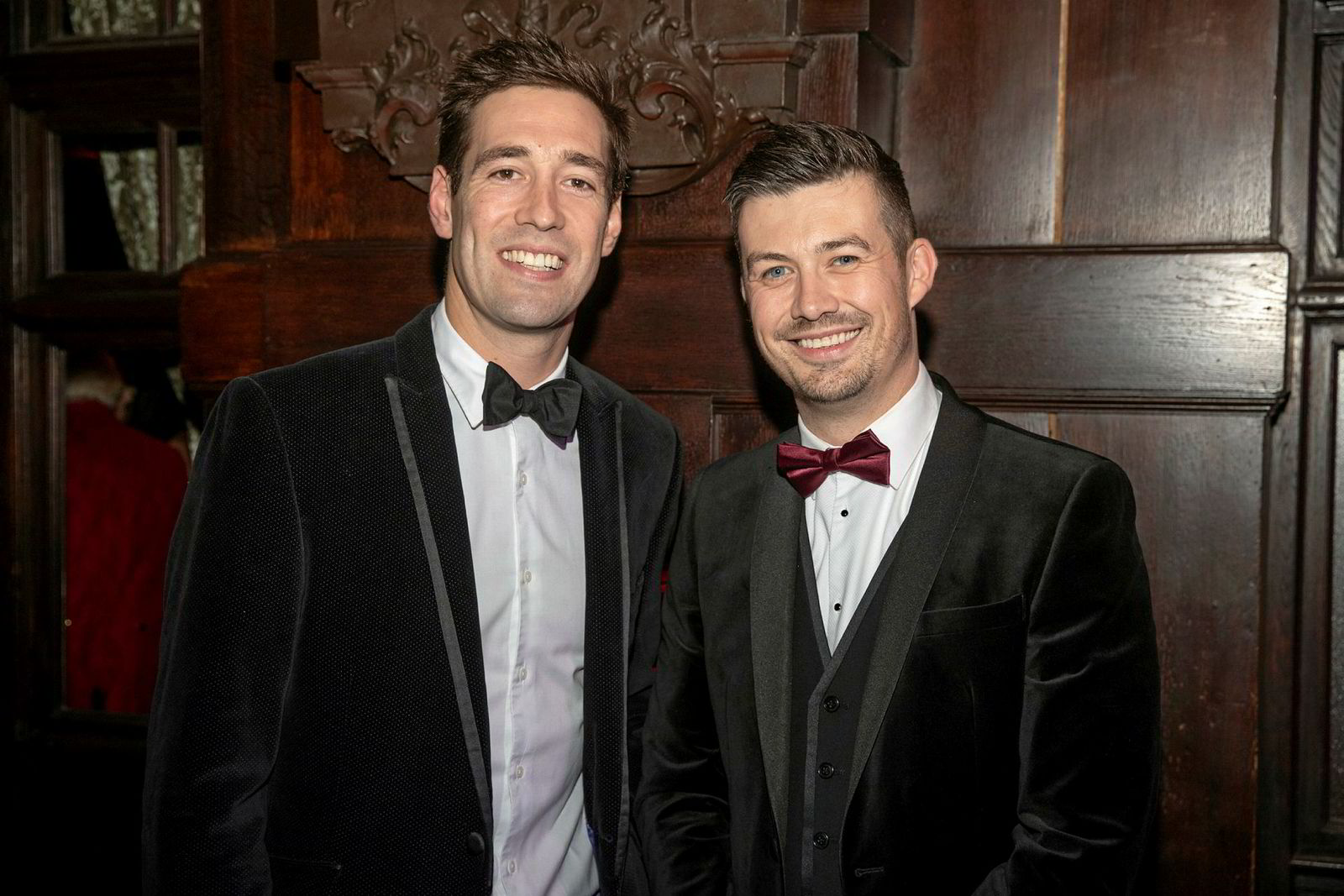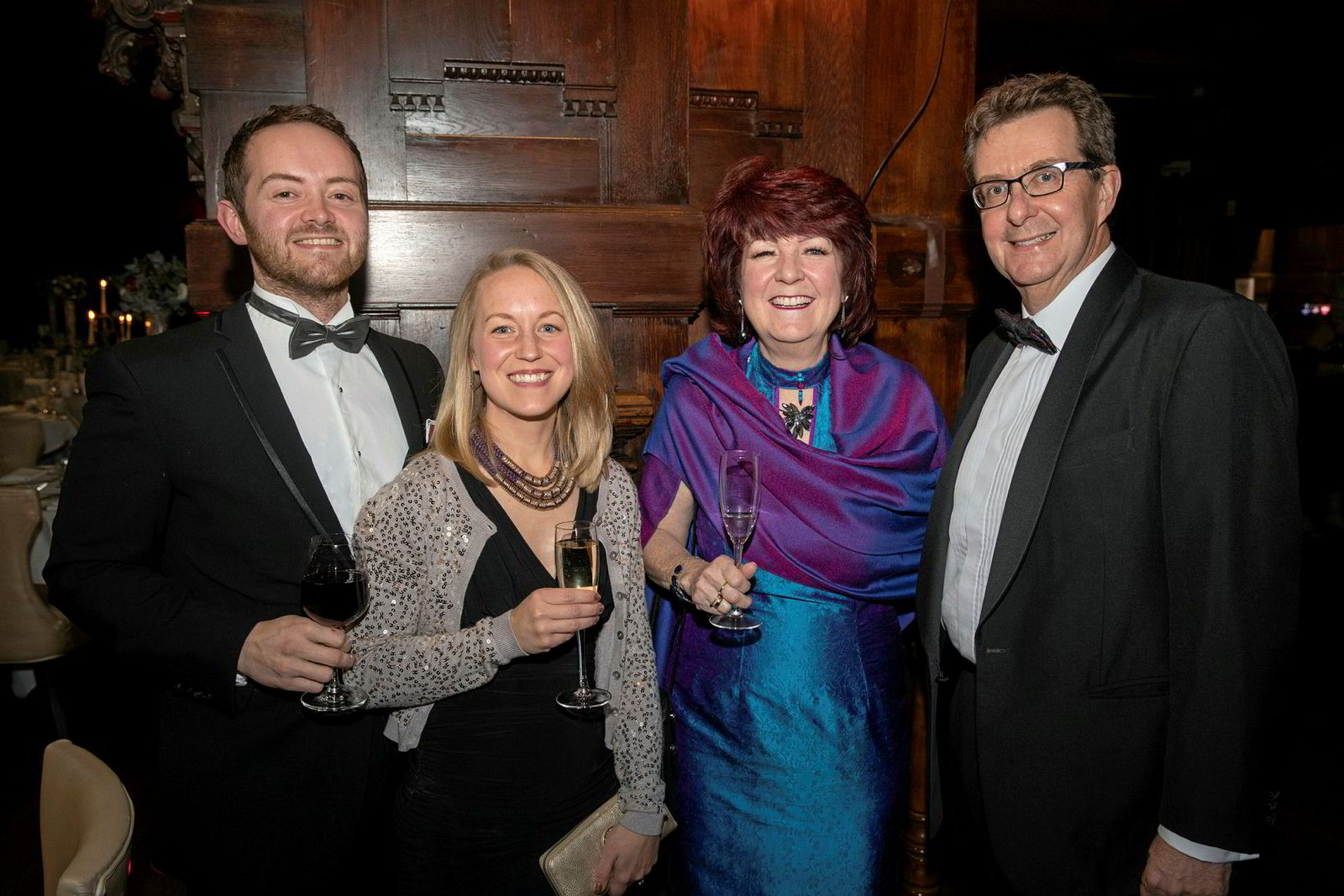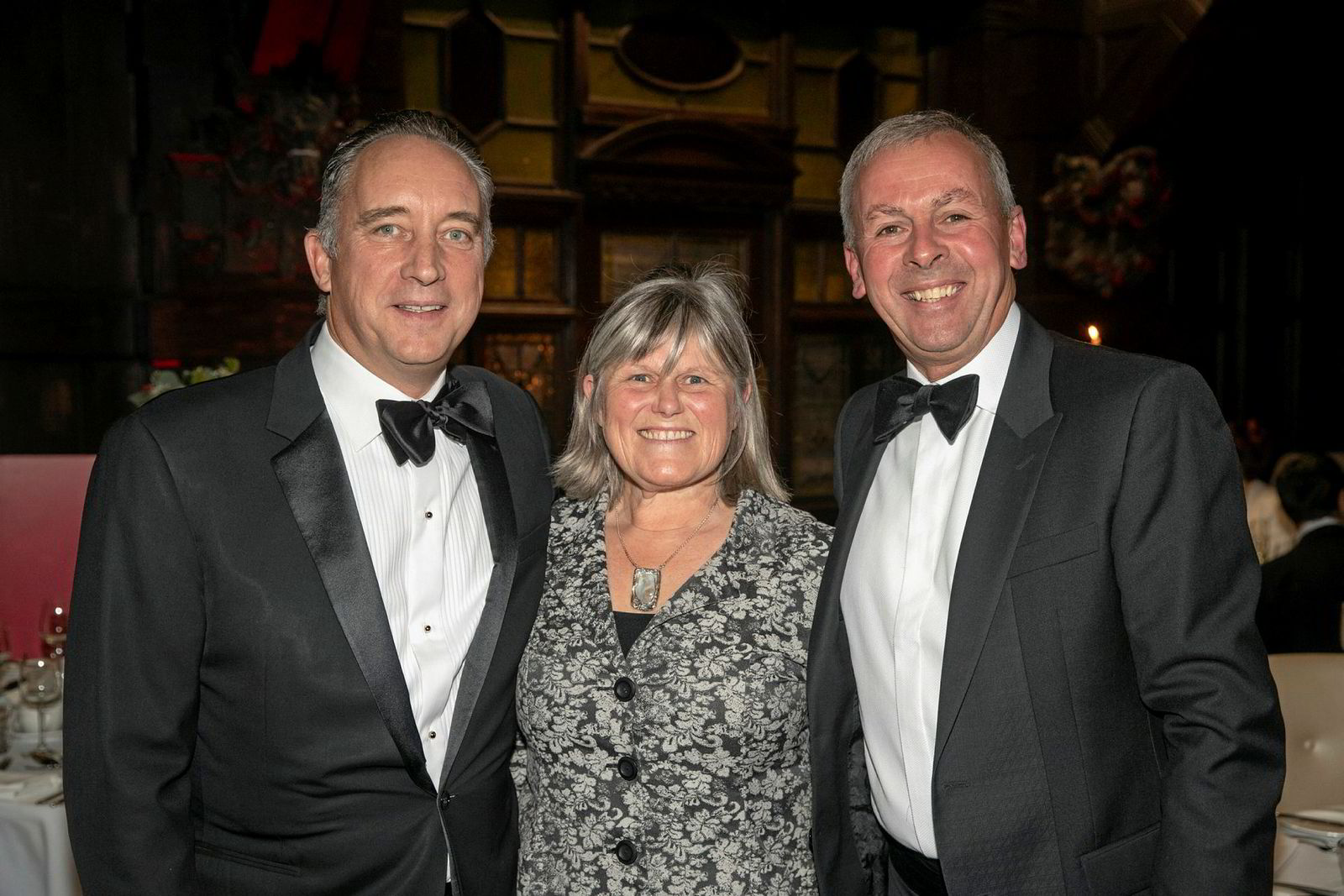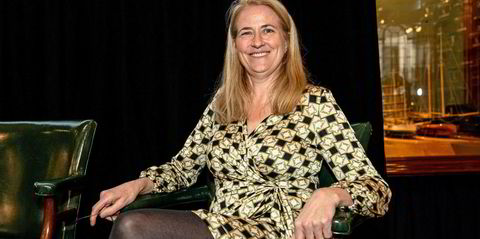Graig Shipping celebrated its centenary with dinner and dancing in Cardiff.
About 250 guests joined chief executive Hugh Williams and his brother Chris, Graig's commercial director, at the Exchange Hotel, on the site where Welsh coal was traded for export until the 1970s.
There were once more than 200 shipping companies listed on the Coal and Shipping Exchange in Cardiff Docks, amid a boom in exports of high-quality coal from the Welsh valleys that began in late 1918.
Graig was founded in 1919 by Idwal Williams with the acquisition of its first ship — the Graig — and is today the sole surviving Welsh shipping company from that era.
It exited shipowning in October, when it sold its last two handysize bulkers, but Graig still operates two vessels and is reinventing itself for the next generation.
The group and its partners will concentrate on promoting its Diamond 2 ultramax new-generation design to Chinese shipyards, leasing companies and global shipowners.
Idwal Marine, which provides ship inspection services and data and is named after the group's founder, is also part of this reinvention.
Inspection platform
Established in 2010, Idwal hosts the industry’s first online inspection platform, InspectMyShip.
“The group is also investing significantly in the continued growth and expanding market share of Idwal Marine’s global inspection business with the development of new technologies and systems,” Hugh Williams told TradeWinds in October.
“The group, with this strategy, sees a very positive outlook and future.”
The dinner in Cardiff on 21 November celebrated the £37,000 ($47,708) Graig raised in October by organising a 100km (62 mile) charity bike ride through the Welsh hills.
All funds raised went to Cardiff’s Velindre Cancer Centre’s victory over cancer campaign.
The events are part of a series Graig is hosting to celebrate its centenary.
The group has also published a book to showcase its rich history. Graig: One Hundred Years in Shipping was written by renowned maritime historian Dr David Jenkins, honorary research fellow at the National Museum of Wales, with a foreword by Graig non-executive director Chris Hilton, and a closing chapter by Hugh Williams.
The book charts Graig’s journey from its birth in an age of unprecedented commercial upheaval in Cardiff after the end of the First World War and the beginning of Wales' boom in coal exports.



